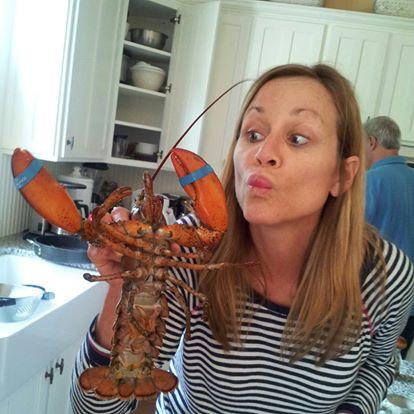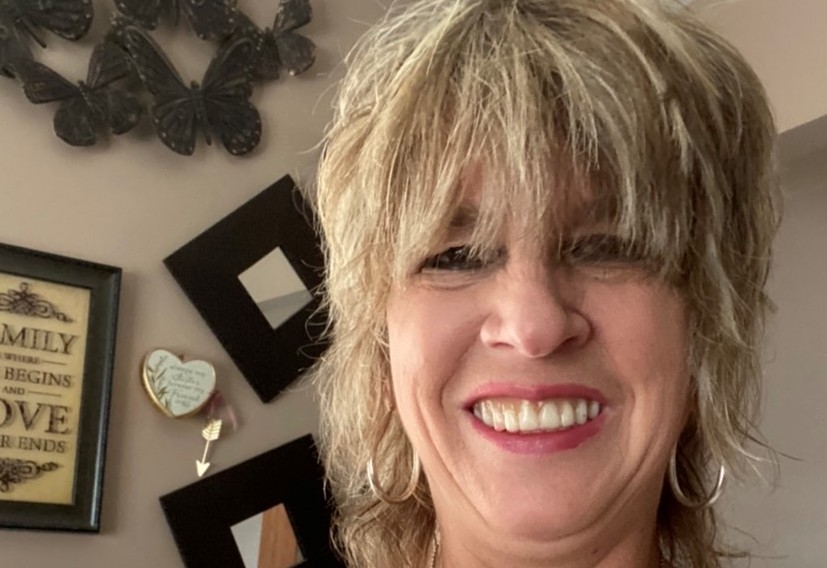A thinking problem led to a drinking problem for Christie she has since overcome alcohol and eating disorders finding hope in recovery and community
By Christie Rudwall
September 18, 2020It is hard to imagine today that my addiction path was not recognizable to me when I was 15. That was nearly 40 years ago. However, as I recall my past, I can identify that my disease started as a thinking problem and not a drinking problem. I did have my first drunk before 14. I do remember that awful feeling of being sick after my dad gave me a little whiskey because I had a cold. Yes, even a little bit at the age of 6 made me very ill. But as I said, it all started as a thinking problem. My dad thought that giving a child a bit of whiskey was a normal remedy. Alcohol is technically a medication, isn’t it?
My experimentation with alcohol started early. I remember intentionally drinking with my friends for fun—but the same result would happen every time. I would drink to intoxication and then I would get sick from the alcohol. I remember thinking at the time I was committing a sin because of these experiments, and I vowed to God that I would never let that happen again.
I was not able to deliver on that solemn vow.
In the spring of 1981, I had a virus that kept me out of school for one month. I was unable to eat. As a consequence, I lost 20 pounds. Someone told me I looked great and I believed them. I was convinced that I would be accepted if I was thin, popular and pretty—and I did not have a problem with that ideology. It became my quest.
And so my disease of addiction manifested from another disorder. I began calculating every calorie I consumed. I also began exercising to ensure that I would burn off any extra calories and by the fall of 1982. I weighed 100 lbs. I am 5’9” and I did not think this was a problem.
I was convinced that I would be accepted if I was thin, popular and pretty—and I did not have a problem with that ideology. It became my quest.”
In my eyes, this was not a problem with my thinking or my ideology. All I saw was a number on the scale. I did not look in the mirror anymore. Friends would express their concern and my thinking was: they are just jealous.
This is when I actually lost control, but I did not know that at the time.
I am going to go back a little into my childhood: I am the second child of four. My parent were in their early ’20s when they started a family. Both of my parents worked. My dad was a young businessman and my mother was a registered nurse. Because money was tight, my mother worked second shift. None of this really has anything to do with my addiction except that I thought that I had to be responsible for my younger siblings. I thought if I took on responsibilities I would be loved. Also at this time, my father began drinking heavily after work.
My experimentation with alcohol started early. I remember intentionally drinking with my friends for fun—but the same result would happen every time. I would drink to intoxication and then I would get sick from the alcohol.”
I mention my father’s drinking because it helps me to understand the genetic component of addiction. My father’s family history includes alcoholism. I was exposed to the chaos of an alcoholic home and I was introduced to alcohol early. I was determined that I would not be alcoholic.
I had a tremendous, false sense of control.
I will be liked if I am thin and I will be loved if I am responsible. I became a “good child” when I was 100 lbs. I stayed “good” for a very long time. I controlled my weight and I controlled my drinking. My thinking became rigid.
I ultimately lost all control when I was 37. I was a mother of three children and a wife. My husband was a successful businessman. After my twins were born, he decided to hire a staff to assist with taking care of the children and the home. I did not work outside of the home. I thought my husband thought I was not capable of handling the chaos of parental responsibility. I was angry, and I drank to be able to get some relief from my feelings.
By the time I was 38, I had experienced all of the symptoms of the disease of addiction. I entered treatment numerous times. I was powerless over my thinking. My brain would not let me challenge my own defenses.
Finally, on November 26, 2007, I had my last drink.
I had been to treatment and suffered consequences. Nothing was getting better because my thinking was not getting better. In therapy, I learned about rational emotive behavior therapy. This helped me learn to challenge my thinking errors. I began to understand that in order to stay sober, I had to surrender my thinking to the care of my therapist, my sponsor and other women in recovery.
Today, I can find humility and ask others to help me.
Today, I am surrounded by people in recovery on a daily basis because my program tells me that is what I have to do.
Today—12 years sober—I am finally accepted and loved for being myself.












